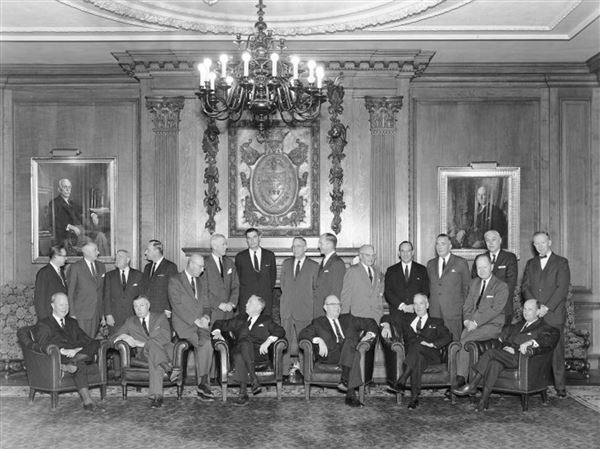LogicLibrary's headquarters in Station Square hardly feel high-tech.


Located above the Grand Concourse Restaurant in the 100-year-old landmark building that once housed the Pittsburgh & Lake Erie Railroad, the offices' stained-glass windows, original black and white tile and dark wood evoke button-down corporate tradition rather than a casually attired staff huddled over their computers.
But this 2-year-old software company feels perfectly at home in its old-fashioned digs. After all, it spent the first year or so of its existence working above a florist shop in Oakmont.
With substantial venture capital backing it and a new development deal with software giant Microsoft Corp., LogicLibrary has more reason to be confident than many technology start-ups these days.
The company "is on the end of the spectrum you want to be on," said Chuck Dietrick, a partner with Birchmere Ventures, a Pittsburgh firm that led a $7.45 million round of investment funding for LogicLibrary a year ago. Its product, Logidex, allows users to organize their software development codes and tools in catalog form and then analyze how they might be reused for future applications.
In other words, it helps customers save on hefty software development costs by recycling existing assets.
Among customers already using Logidex are CNA Insurance and discount broker Charles Schwab. The deal with Microsoft, announced this week, will further boost LogicLibrary's exposure to millions of software engineers who use Microsoft tools to develop applications.
The agreement calls for LogicLibrary to provide a library of software assets on Microsoft's Development Network, which is used by an estimated 3 million Microsoft developers around the world. The deal includes joint marketing and sales initiatives, including a 60-day trial of the Logidex product for developers using the Microsoft network.
After developers gain access to the product through Microsoft, LogicLibrary officials expect that they'll want to purchase it themselves, said Dietrick, who worked for Microsoft for eight years in technical and management positions.
"It's tremendous exposure for this technology," he said.
One of the key elements that attracted Birchmere and other investors to LogicLibrary was its software group.
"It's a stellar development team," Dietrick said of the engineers who formerly worked for IBM in Rochester, Minn., and stayed there when they joined LogicLibrary. The 12-member technology group is headed by Brent Carlson, a 17-year IBM veteran who is highly regarded in the industry for his contributions to such high-profile initiatives as IBM's WebSphere and San Francisco projects.
"Brent is a rock star in the business of software development," said Greg Coticchia, LogicLibrary's chief executive officer who runs the administrative team of eight in Pittsburgh and has "learned how to manage remotely" the team in Minnesota.
Coticchia, a veteran of several technology firms in Pittsburgh and Washington, D.C., including local start-ups Mallet Technology, American Robot Corp. and Tartan Laboratories, joined LogicLibrary in July.
He wouldn't disclose revenues but said the company's sales "are moving in the right direction."
The company's roots date to 2000, when Mark Vernallis, its chief financial officer, and Ellen Milantoni, who has since left the company, had an idea for a business that would come up with a way to organize software components. They met Carlson at an industry conference, got wind that IBM might break up his group in Minnesota and persuaded him to come aboard once they landed their initial round of funding, $5.2 million, from Rebar Foundry, a Boston investment group.
Last year's Birchmere-led round also included funding from U.S. Trust's Excelsior Venture Partners III of New York; Novak Biddle Venture Partners of Bethesda, Md.; and Pittsburgh's Future Fund.
Frank Demmler, president of Future Fund, said LogicLibrary had carved out a strong niche because software developers have been searching for years for reusable code "like the Holy Grail."
"The low-hanging fruit for them is helping companies catalog and evaluate software components ... so that companies can reuse their software."
First Published: April 3, 2003, 5:00 a.m.













